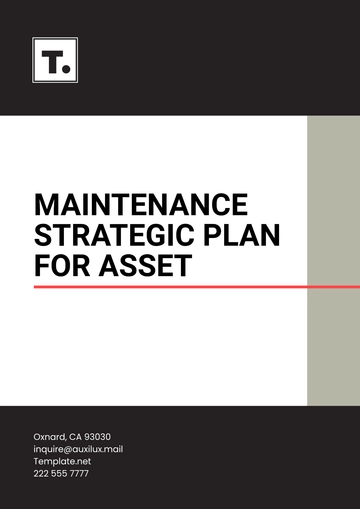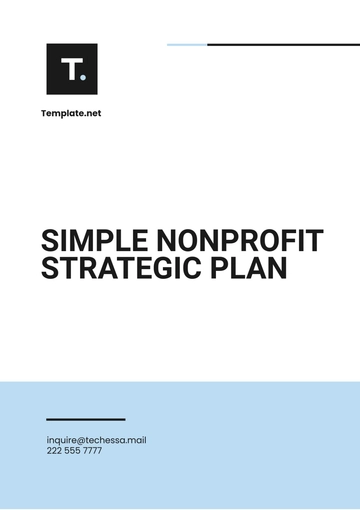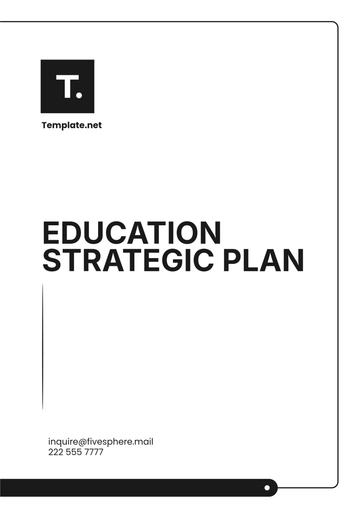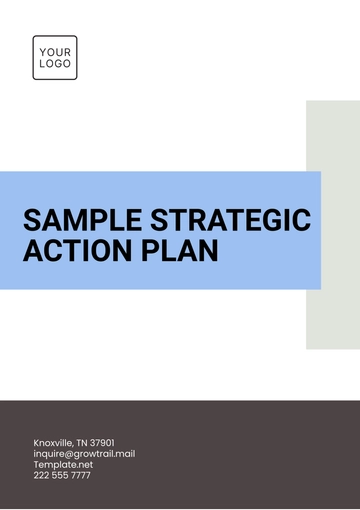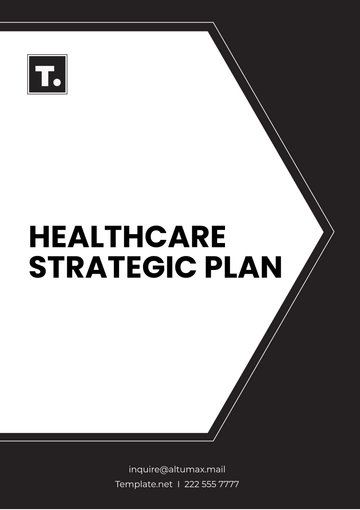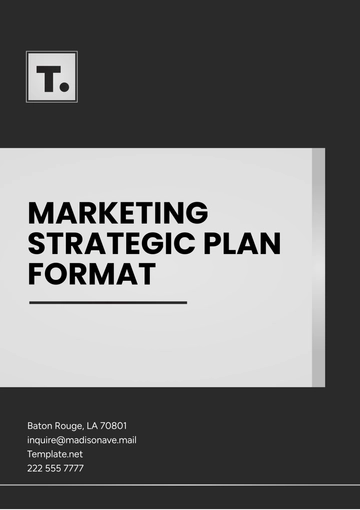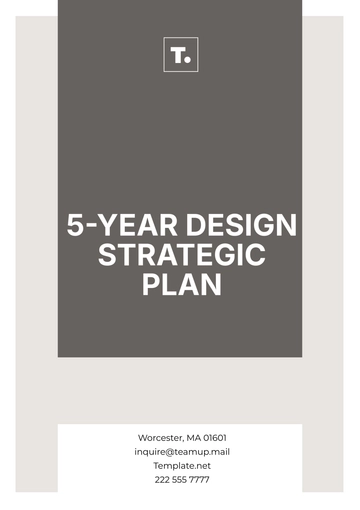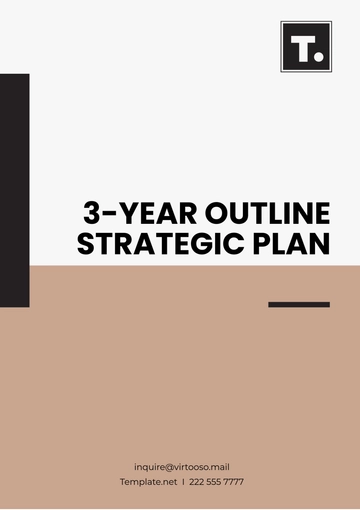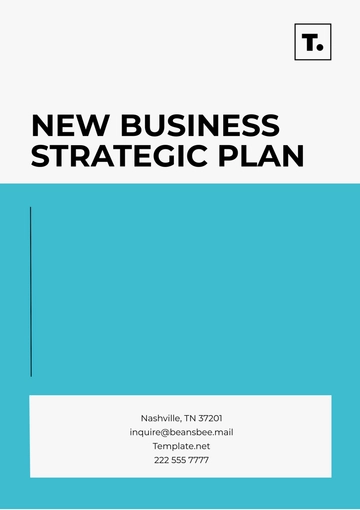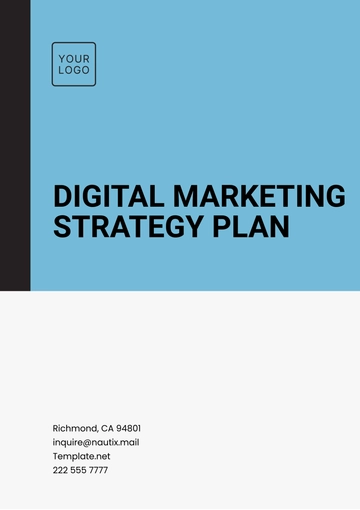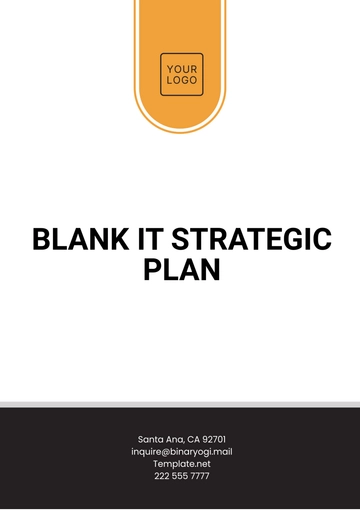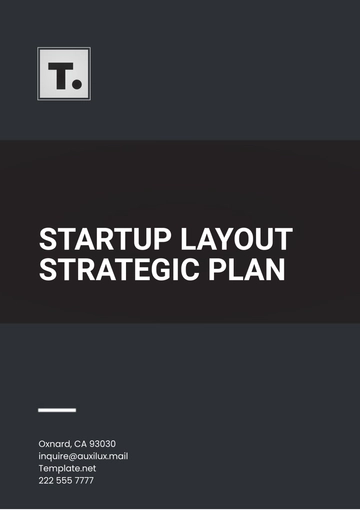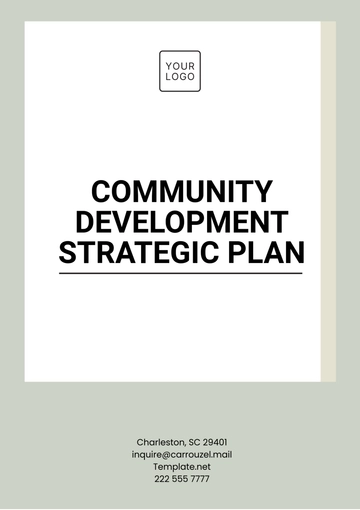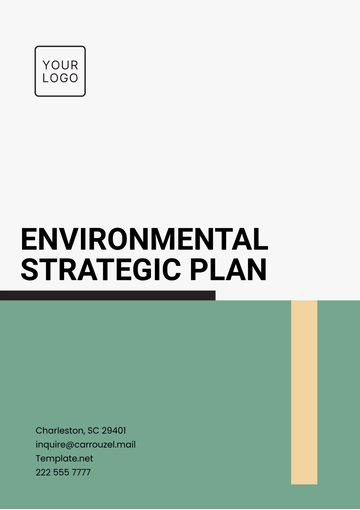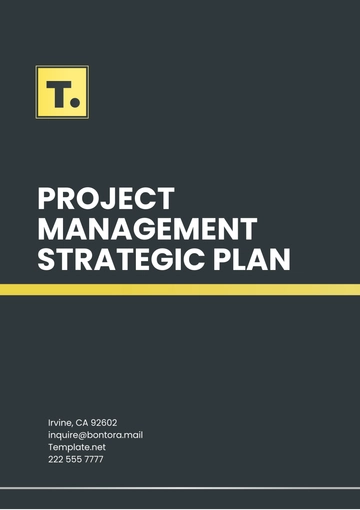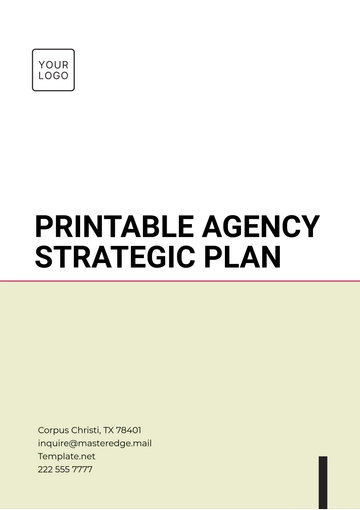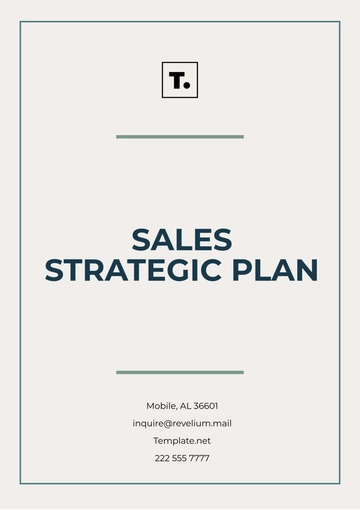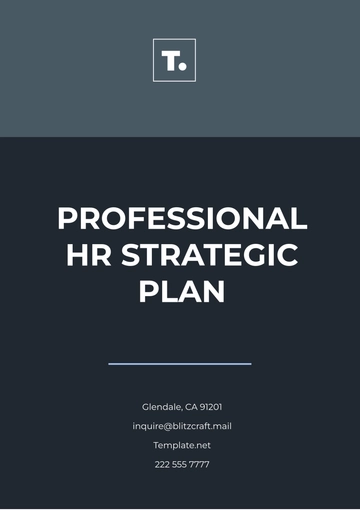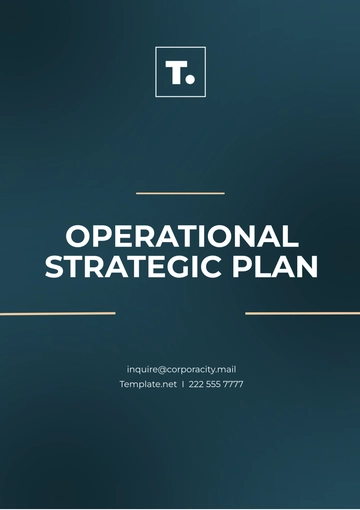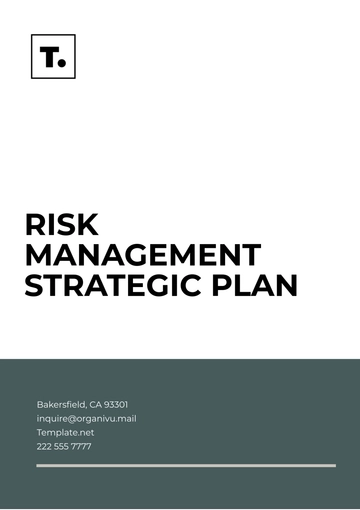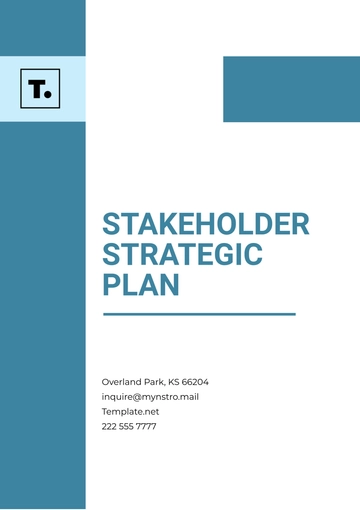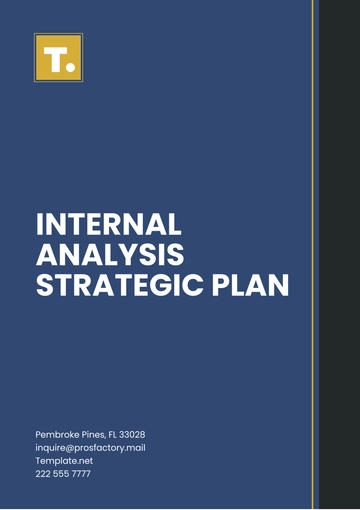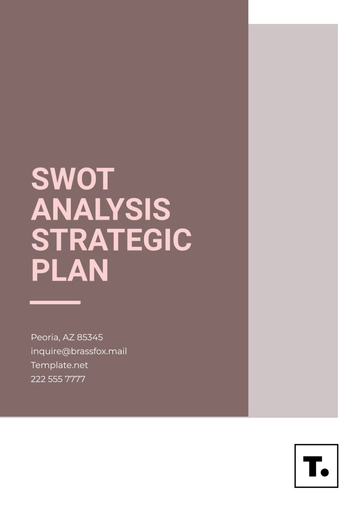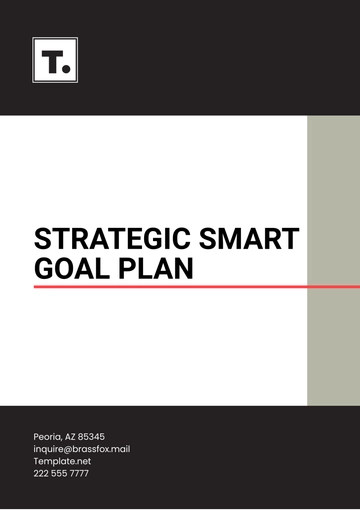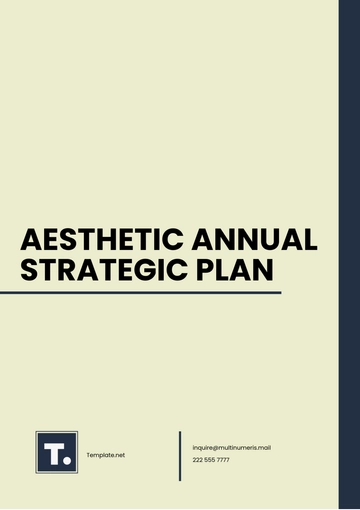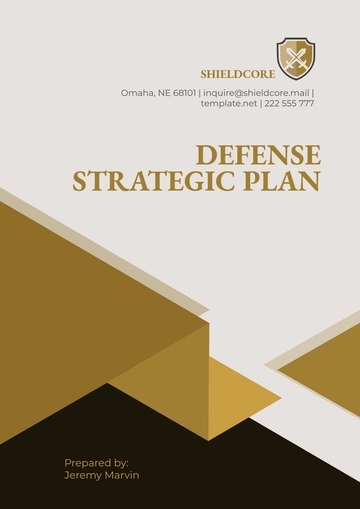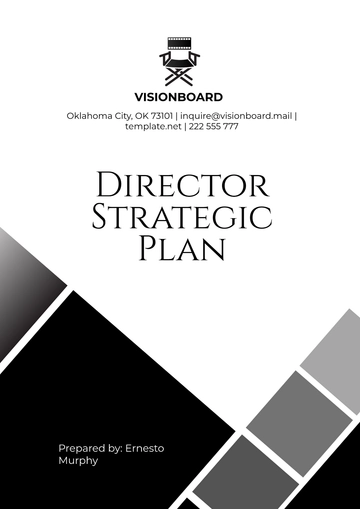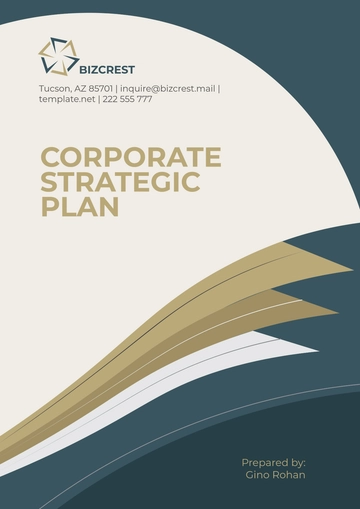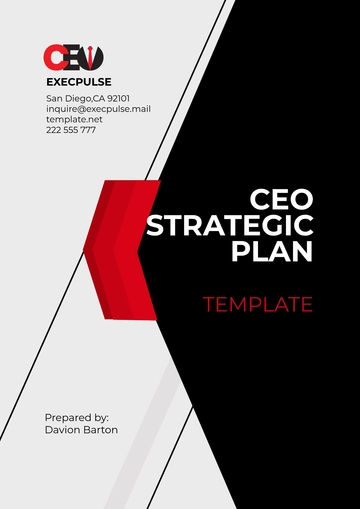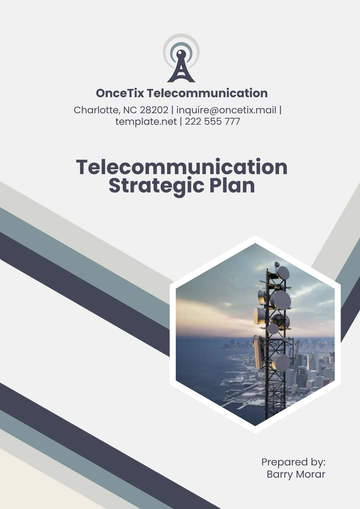Free Charity Strategic Plan
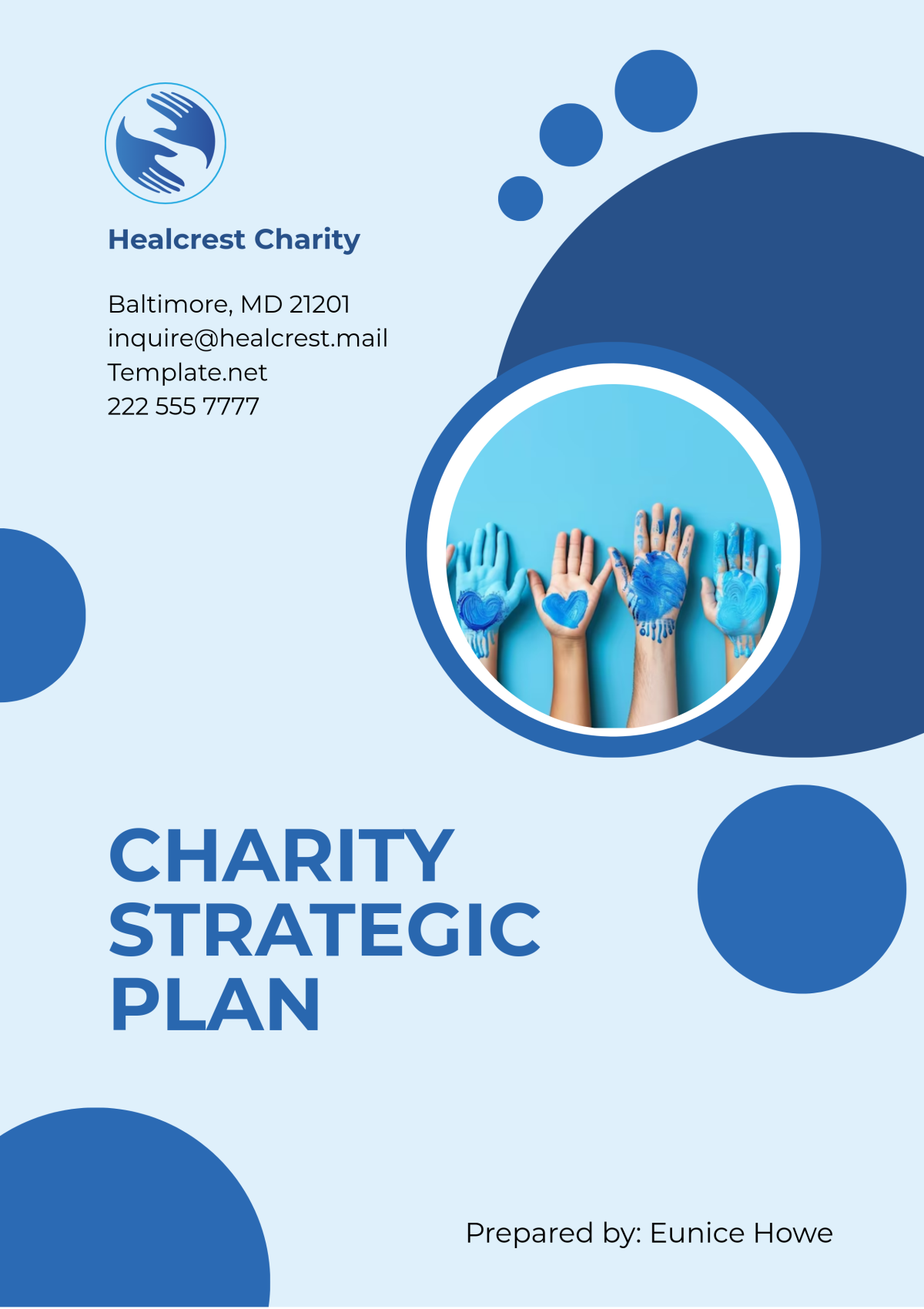
1. Executive Summary
A. Overview
The strategic plan for [Your Company Name] outlines our roadmap for the next [five] years, guiding efforts to increase our impact and enhance services in response to emerging community needs. As we enter the year 2050, our focus will be on sustainable development, resource allocation, and service innovation. This plan is critical for steering organizational priorities and maximizing community benefit.
Our approach prioritizes collaboration with key stakeholders and program evaluation, ensuring that all initiatives align with community needs. With clear objectives, we aim to build a resilient organization capable of adapting to changes and delivering long-term impact.
B. Mission Statement
[Your Company Name] strives to improve the lives of underserved communities by providing essential services and advocating for social justice. Our mission is to empower individuals through holistic support systems that address basic needs, foster self-sufficiency, and promote equality.
C. Vision Statement
Our vision is to create a world where every individual, regardless of background, has access to the resources needed to live a dignified and prosperous life. By 2055, we envision communities that are self-sufficient, interconnected, and resilient.
D. Core Values
Integrity: We are committed to transparency in all operations, ensuring that every action aligns with our values and mission.
Compassion: Every interaction is based on empathy and a deep understanding of the challenges faced by individuals in need.
Collaboration: We work with local organizations, governments, and individuals to amplify our impact.
Innovation: Our programs evolve in response to feedback and changing circumstances.
Sustainability: We are committed to developing long-term, sustainable solutions that address the root causes of social challenges.
2. Organizational Background
A. History
Founded in 2050, [Your Company Name] began as a small grassroots organization focusing on food assistance and homelessness in the local community. Since then, we have expanded to offer a wide range of services addressing social, economic, and health disparities. Over the past [five] years, we have served over [10,000] individuals and continue to grow in response to community demand.
Year | Milestone |
|---|---|
[2050] | Founded by local community leaders |
[2053] | Launched Food Assistance Program |
[2055] | Expanded services to include housing support |
[2058] | Achieved [25%] growth in service delivery |
[2059] | Introduced mental health services |
B. Current Programs and Services
Currently, [Your Company Name] offers the following key programs:
Food Assistance Program: Provides over [1,500] meals per month to families in need. In 2050, the program expanded its reach through partnerships with local farms, distributing fresh produce.
Housing Support: Helps families secure temporary and permanent housing. In [2050], [200] families were successfully transitioned into stable housing.
Youth Empowerment: Offers mentorship and skill-building workshops to at-risk youth. Last year, [150] youth participated in our programs, with [80%] achieving positive outcomes like employment or further education.
Mental Health Services: Provides mental health support to [300] individuals per month, offering counseling and wellness programs to address rising mental health needs.
C. Organizational Structure
[Your Company Name] operates with a Board of Directors comprising [12] professionals from diverse sectors. Our staff includes [30] full-time employees and [100] volunteers, organized into four core departments:
Department | Key Responsibilities |
|---|---|
Program Management | Oversees service delivery and evaluation |
Fund Development | Secures financial resources through grants and donations |
Marketing and Communications | Promotes awareness and manages outreach |
Operations | Manages HR, finances, and regulatory compliance |
3. Environmental Analysis
A. External Environment
1. Economic Trends
The economic outlook from 2050 to 2055 suggests moderate fluctuations that will affect charitable giving and government funding. Rising unemployment, currently at [9%], could increase demand for our services. As inflation rises by [15%], families face greater financial stress, making it harder to meet basic needs.
Factor | Current Status (2050) | Anticipated Impact |
|---|---|---|
Unemployment Rate | [9%] | Increased demand for services |
Cost of Living | [15%] rise | Pressure on low-income families |
2. Social Trends
Several social trends shape our work, including rising inequality and mental health awareness. The wealth gap has widened, with the top [10%] holding [70%] of total wealth, leading to increased demand for financial literacy programs.
Additionally, requests for mental health support have increased by [40%] in the past year, signaling a growing need for services related to emotional and psychological well-being.
3. Political and Legal Trends
Regulatory Changes: Potential tax regulation changes may affect individual giving, while cuts in social service funding could reduce our budget by [20%].
Government Funding: Government grants currently make up [40%] of our total revenue, so any cuts could significantly impact program sustainability.
B. Internal Environment
1. Strengths
Established Presence: With over five years of service, [Your Company Name] is trusted by the community and known for delivering high-quality services.
Dedicated Team: Our staff and volunteers are highly skilled and committed, with a low turnover rate of [5%], ensuring consistent service delivery.
Diverse Programs: Our holistic approach enables us to meet various community needs, making us a go-to organization for comprehensive support.
2. Weaknesses
Limited Funding Sources: [70%] of our funding comes from [three] major donors, putting us at risk if any of them decrease or stop their contributions.
Outdated Technology: Inefficient systems hinder our ability to scale up services to meet growing demand. An upgrade would require an investment of approximately [$200,000].
Capacity Constraints: We experienced a [25%] increase in service requests last year, but without expanding our infrastructure, we may struggle to meet future demand.
4. Strategic Goals and Objectives
To address these challenges, [Your Company Name] has developed both long-term and short-term goals.
A. Long-term Goals
Goal | Target Year | Target Metric |
|---|---|---|
Increase Service Reach | [2055] | Serve [5,000] additional individuals |
Diversify Funding Sources | [2055] | Secure [15] new funding sources |
Upgrade Organizational Capacity | [2052] | Invest [$200,000] in technology and systems |
Increase Service Reach: By 2055, we aim to reach an additional [5,000] beneficiaries by expanding into new geographic areas and offering new services like financial literacy programs. This goal will require scaling up our operational capacity and fostering more partnerships.
Diversify Funding: To ensure long-term sustainability, we plan to secure [15] new funding streams, including corporate sponsorships and public fundraising events, by 2055. This will decrease reliance on a few major donors, thus reducing financial risk.
Upgrade Capacity: We will invest [$200,000] to upgrade our technology infrastructure, enabling more efficient operations and better data management. These upgrades are essential for improving service delivery and scaling our programs.
B. Short-term Objectives
Objective | Timeframe | Metric |
|---|---|---|
Secure [5] New Donors | 2051 | [5] new funding sources secured |
Develop Mental Health Program | 2052 | Serve [500] individuals with new services |
Secure New Donors: In the next two years, we aim to secure [5] new donors, contributing to a [$50,000] increase in annual revenue. We will host [two] major fundraising events and initiate targeted outreach to local businesses and philanthropists to broaden our support base.
Develop Mental Health Program: By 2052, we plan to implement a comprehensive mental health program that will serve at least [500] individuals in the community. This program will integrate counseling services, workshops, and community outreach to raise awareness and reduce stigma surrounding mental health issues.
Launch Financial Literacy Workshops: By the end of 2051, we will develop and launch financial literacy workshops, aimed at helping [300] individuals gain essential skills for budgeting, saving, and managing debt. These workshops will be offered in collaboration with local financial institutions.
5. Target Audience
A. Primary Beneficiaries
Our primary beneficiaries include individuals and families facing economic hardships, particularly those who are:
Low-income households
Individuals experiencing homelessness
At-risk youth and their families
Residents struggling with mental health issues
B. Stakeholders
Key stakeholders include:
Stakeholder | Role |
|---|---|
Local Government | Provides funding and support for programs |
Community Partners | Collaborate on service delivery |
Donors and Sponsors | Financial contributors |
Volunteers | Assist in program implementation |
Clients | Feedback providers for program evaluation |
6. Marketing and Communications Strategy
A. Brand Positioning
[Your Company Name] is positioned as a leading nonprofit organization dedicated to empowering underserved communities. Our brand emphasizes trust, compassion, and community impact, focusing on delivering high-quality, evidence-based services.
B. Outreach Strategies
To enhance community engagement and visibility, we will implement the following outreach strategies:
Social Media Campaigns: Leverage platforms like Facebook, Instagram, and Twitter to share success stories, promote events, and engage with the community. We aim to increase our social media following by [25%] over the next year.
Community Events: Host three major community events annually to raise awareness and funds, fostering relationships with community members and stakeholders.
Collaborative Partnerships: Work with local businesses and organizations to create joint marketing efforts, which will enhance our visibility and broaden our reach.
C. Digital Marketing
We will enhance our online presence by revamping our website and optimizing it for search engines (SEO). Our goals include:
Updating the website to provide easier access to information and resources.
Implementing an email marketing strategy to keep supporters informed and engaged.
7. Financial Plan
A. Revenue Streams
To ensure financial sustainability, we will diversify our revenue streams as follows:
Revenue Stream | Percentage Contribution | Strategy for Growth |
|---|---|---|
Individual Donations | [40%] | Host fundraising events, engage in direct outreach |
Grants | [30%] | Identify new grant opportunities and apply |
Corporate Sponsorships | [20%] | Create sponsorship packages for local businesses |
Fundraising Events | [10%] | Increase frequency and scale of events |
B. Budgeting Process
Our budgeting process will include:
Annual Budget Planning: Develop a comprehensive annual budget that reflects our strategic goals and anticipated revenues and expenses.
Regular Financial Review: Conduct quarterly reviews of financial performance against the budget to ensure transparency and accountability.
Contingency Planning: Maintain a reserve fund to address potential funding shortfalls or unforeseen expenses.
C. Financial Projections
Year | Revenue Projections | Expense Projections | Surplus/Deficit |
|---|---|---|---|
2050 | [$500,000] | [$450,000] | [$50,000] |
2051 | [$600,000] | [$500,000] | [$100,000] |
2052 | [$700,000] | [$600,000] | [$100,000] |
2053 | [$800,000] | [$700,000] | [$100,000] |
2054 | [$900,000] | [$800,000] | [$100,000] |
8. Implementation Plan
A. Action Plans
The following action plans outline the specific steps to achieve our strategic objectives:
Objective | Action Steps | Responsible Party | Timeline |
|---|---|---|---|
Increase Service Reach | Identify underserved areas | Program Manager | 2051 |
Launch new programs | Program Staff | 2052 | |
Diversify Funding Sources | Develop donor engagement strategy | Fund Development Team | 2051 |
Apply for [10] new grants | Grants Coordinator | 2052 | |
Upgrade Organizational Capacity | Conduct technology assessment | Operations Manager | 2051 |
Implement technology upgrades | IT Specialist | 2052 | |
Develop Mental Health Program | Design program curriculum | Program Director | 2051 |
Recruit mental health professionals | HR Manager | 2052 |
B. Key Performance Indicators (KPIs)
We will track our progress using the following KPIs:
KPI | Target |
|---|---|
Number of individuals served | Increase by [25%] annually |
Funding diversification | Secure [15] new sources by [2055] |
Community engagement | Host [3] events annually |
Program satisfaction | Achieve [90%] satisfaction rate |
9. Monitoring and Evaluation
A. Assessment Methods
We will employ a mix of qualitative and quantitative methods to evaluate our programs and initiatives, including:
Surveys: Gather feedback from clients and stakeholders to assess program effectiveness and satisfaction.
Data Analysis: Track service delivery metrics and financial performance on a quarterly basis.
Focus Groups: Conduct focus groups with beneficiaries to gather in-depth insights into their experiences and needs.
B. Reporting Schedule
We will produce regular reports to monitor our progress and share outcomes with stakeholders:
Report Type | Frequency | Audience |
|---|---|---|
Financial Report | Quarterly | Board of Directors, Funders |
Program Evaluation Report | Annually | Staff, Donors, Community |
Impact Report | Bi-annually | General Public, Stakeholders |
10. Conclusion
The strategic plan for [Your Company Name] provides a clear roadmap for the next [five] years, outlining our commitment to addressing community needs through innovative programs and effective resource management. By focusing on our long-term goals and short-term objectives, we aim to enhance our services, diversify our funding, and ultimately improve the lives of those we serve.
Through ongoing evaluation and adaptation, we will ensure that our organization remains resilient and responsive to the changing landscape of community needs. With the support of our dedicated staff, volunteers, and stakeholders, [Your Company Name] is poised for a future of growth and positive impact in our community.
- 100% Customizable, free editor
- Access 1 Million+ Templates, photo’s & graphics
- Download or share as a template
- Click and replace photos, graphics, text, backgrounds
- Resize, crop, AI write & more
- Access advanced editor
Define your mission and goals with the Charity Strategic Plan Template from Template.net. This editable and customizable template helps you outline your charity's objectives, strategies, and action plans effectively. Use our Ai Editor Tool to personalize it, ensuring your strategic plan aligns with your organization’s vision for impactful community service.
